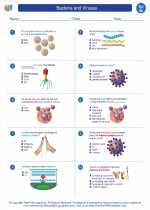Surgery: An Overview
Surgery is a medical specialty that uses operative techniques to investigate or treat a pathological condition such as injury, disease, or deformity. It involves making an incision in the body to access internal organs or tissues and may be performed for various purposes, including diagnostic, therapeutic, reconstructive, or cosmetic reasons.
Types of Surgeries
There are several types of surgeries, including:
- Elective Surgery: Planned surgery that is scheduled in advance.
- Emergency Surgery: Surgery that must be performed immediately due to a life-threatening situation.
- Minimally Invasive Surgery: Procedures performed through tiny incisions using specialized tools and techniques.
- Reconstructive Surgery: Surgery performed to restore function or appearance due to injury or congenital anomalies.
- Orthopedic Surgery: Surgery focused on the musculoskeletal system, including bones, joints, muscles, ligaments, and tendons.
- Plastic Surgery: Surgical procedures aimed at enhancing a person's appearance.
Preparation for Surgery
Prior to undergoing surgery, patients need to prepare themselves physically and mentally. This may involve undergoing pre-operative tests, following specific dietary instructions, and understanding the risks and benefits of the procedure. Additionally, patients may need to stop taking certain medications or adjust their lifestyle habits to optimize their surgical outcomes.
During Surgery
During the surgical procedure, the patient is typically under anesthesia to ensure they do not feel pain or discomfort. The surgeon and the surgical team work together to perform the necessary steps of the surgery, which may include cutting, suturing, removing diseased tissue, or inserting medical devices. The surgical environment is carefully controlled to minimize the risk of infection and ensure the safety of the patient.
Post-Surgery Care
After the surgery, patients require post-operative care to facilitate a smooth recovery. This may involve monitoring for complications, managing pain, and following specific instructions for wound care and physical activity. Depending on the type of surgery, patients may need to undergo rehabilitation or physical therapy to regain strength and function.
Study Guide
If you are studying surgery, here are some key topics to focus on:
- The different types of surgeries and their purposes
- Preparation and pre-operative procedures for surgery
- The role of anesthesia and the surgical team during the procedure
- Post-operative care and potential complications
- Ethical considerations in surgery and patient rights
Understanding the principles of surgery and the associated medical terminology will provide a strong foundation for further exploration in this field.
.◂Science Worksheets and Study Guides Seventh Grade. Bacteria and Viruses

 Activity Lesson
Activity Lesson
 Worksheet/Answer key
Worksheet/Answer key
 Worksheet/Answer key
Worksheet/Answer key
 Worksheet/Answer key
Worksheet/Answer key
 Worksheet/Answer key
Worksheet/Answer key
 Vocabulary/Answer key
Vocabulary/Answer key
 Vocabulary/Answer key
Vocabulary/Answer key
 Vocabulary/Answer key
Vocabulary/Answer key
 Vocabulary/Answer key
Vocabulary/Answer key
